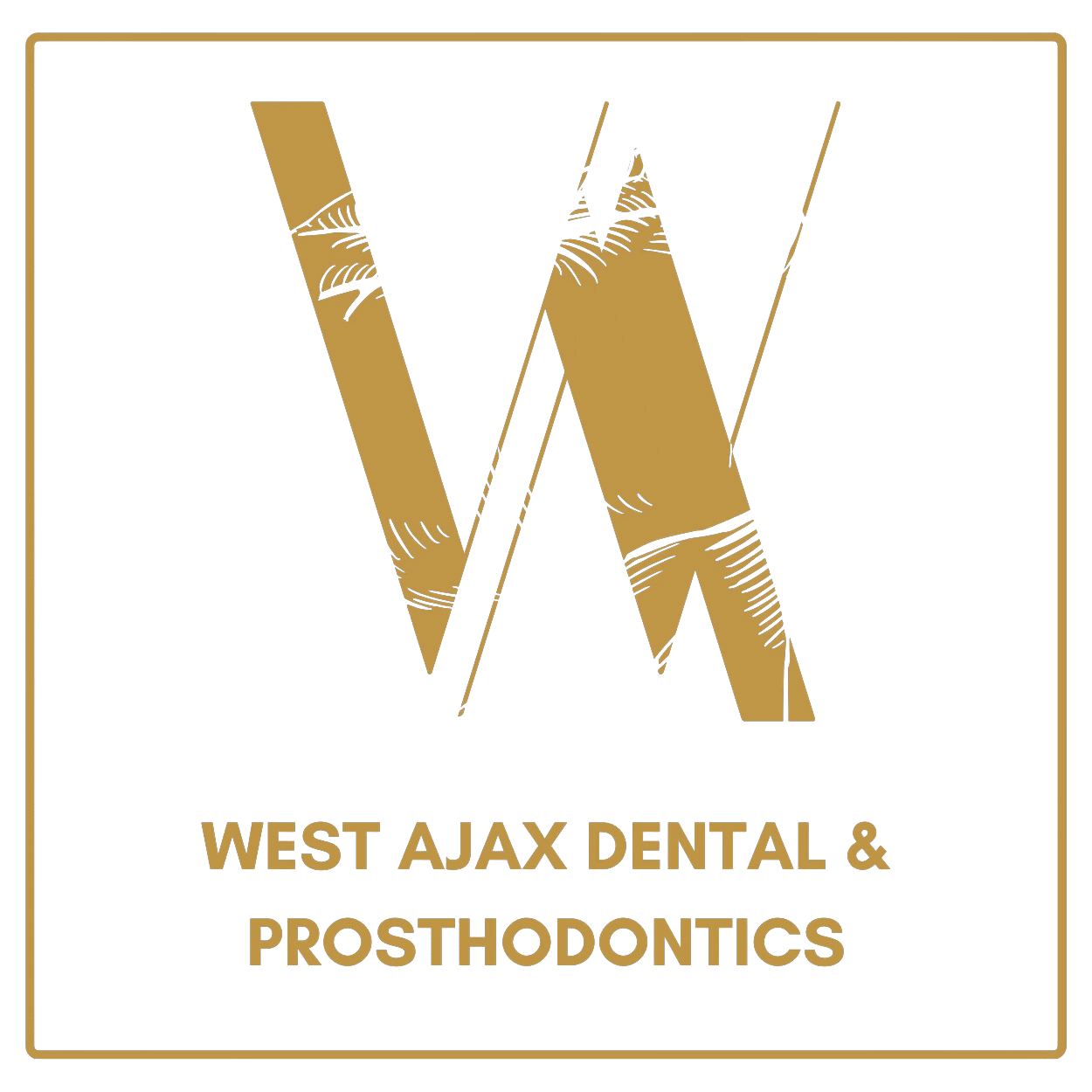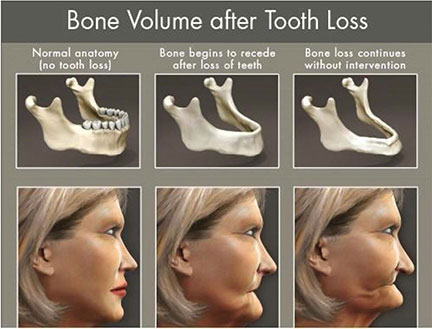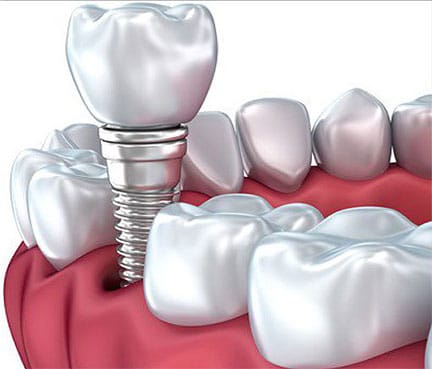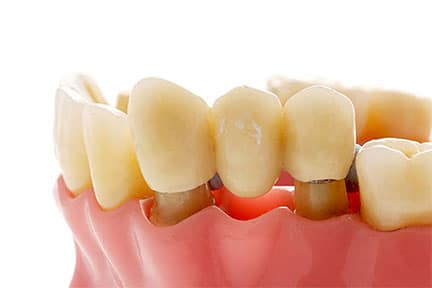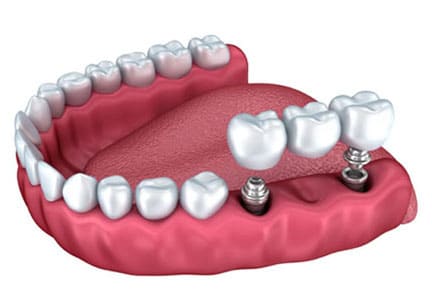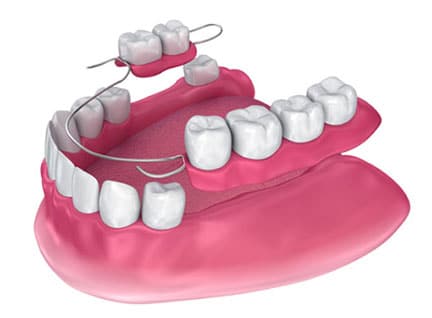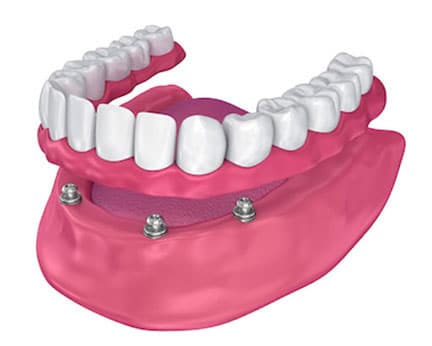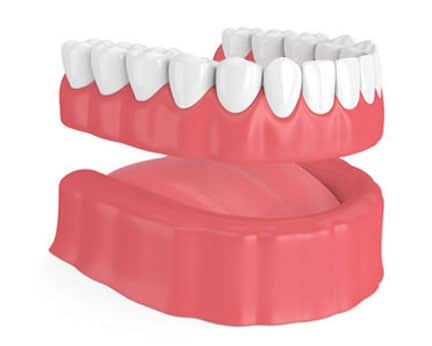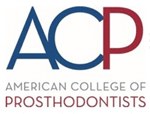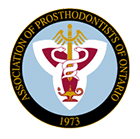Dental Implants
What is a Dental Implant?
A Dental Implant is the standard upon which every other tooth replacement option is judged. Implants look more natural than other options and tend to be more stable and have longer lifespans than other choices. Dental implants may be more expensive but they do last much longer.
These devices made of titanium alloy are used to replace the root of the tooth and give support to a prosthesis, thus contributing to enhanced physical appearance and ability to chew better. They are suitable for patients who have lost one, several, or all teeth.
Of all the modern dentistry options to replace missing teeth, dental implants are by far the best. There is no tooth-replacement alternative that will give you a longer-lasting result.
The surgical procedure used to place a dental implant is minor but requires skill and experience to prevent failure.
Only local anesthesia is required in most cases. After a healing period, the dental implant is restored with a custom-made restoration to match your existing natural teeth.
Dental implants have a documented success rate of over 96.2%, which is significantly higher than any other tooth-replacement option available today.
Single-tooth or Multiple-teeth, Cosmetic
Dentistry Procedures:
Surgical Reconstructions
Mini Dental Implants
Implant Retained (Dentures)
Implant Supported Prosthesis (Fixed and Hybrid)
Dental Crowns & Dental Bridges
Implant Complications Aesthetic/ Functional
Fractured Abutments
Broken Screws
If lots of teeth need to be replaced, do separate dental implants have to be placed for each one?
Not necessarily. Your dental professional will assess the number of teeth that need to be replaced and the size of the prosthesis. They will also calculate how many implants are required. Each case has to be studied and planned in detail.
What Are The Advantages Of Dental Implants?
Aesthetics
Dental Implants, beyond looking more like natural teeth, help stop the process of bone resorption, which happens when the patient loses a full tooth (crown and root) and which can change the appearance of the face.
Durability
Dental Implants are a solution designed to last a lifetime, particularly when combined with prosthetic components by the same brand as the dental implant.
Conservation of the natural teeth
In the crown & bridge technique, the teeth adjacent to the lost teeth must be filed down to be used as anchors for a bridge. But dental implants eliminate the need to damage healthy teeth.
Preservation of the bone structure
Dental implants transmit the force of chewing to the jawbone, thus helping to conserve it. In the case of partial prosthesis or conventional bridges, the bone gradually suffers resorption, because the jawbone is no longer being stimulated.
Preservation of the palate
Covering areas of oral mucosa with removable prosthesis interferes with the palate. This does not happen in the case of implants, which are more comfortable and can avoid the need to use removable prosthesis.
Maintaining quality of chewing
Dental prosthesis supported by dental implants improve chewing efficiency and effectiveness in addition to improving the patient’s nutrition.
What Are The Consequences of Losing Teeth?
If you have lost any of your teeth, you no doubt realize there are consequences to living without them: Your smile may not look the way you want it to; eating, speaking and intimacy may be more difficult; and your self-confidence may fade. There are also hidden consequences of losing teeth that affect not only your appearance but also your health.
Loss of jawbone inevitably follows tooth loss
Remaining teeth shift or tilt into the spaces left open by your missing teeth
Bite problems and even jaw joint (TMJ) pain
Compromised nutrition and poor general health
SINGLE TOOTH REPLACEMENT OPTIONS
There are several treatment options available to restore or replace missing teeth, depending on your clinical circumstances. One or more of the treatment options may be suitable in your case.
DENTAL IMPLANT + CROWN
Conservation of the adjacent natural teeth
Preservation of the bone structure
Full functionality of the original tooth and no one can see the difference
3-UNIT FIXED DENTAL BRIDGE
Adjacent teeth are modified
Bone Loss is not prevented
Looks and feels natural
Avoid surgery
FIXED DENTAL BRIDGE
Quite simply, a fixed Dental Bridge fills the gap between one or more missing teeth. The process of implementing a fixed bridge usually involves multiple trips to the dentist to customize the bridge. A fixed dental bridge looks, feels and functions like natural teeth, does not require removal for cleaning and is typically much more cost effective than a dental tooth implant.
MULTIPLE TEETH REPLACEMENT OPTIONS
DENTAL IMPLANT FIXED PROTHESIS
Implant-supported bridges do not depend on your natural teeth for support and are instead connected to dental implants. Improved stability is just one of the benefits of implant-supported bridges
Preservation of bone
Teeth look & feel more natural
Maintain chewing quality
REMOVABLE PARTIAL DENTURES
A removable partial denture consists of replacement teeth for a small section of missing teeth and look and function as normal.
While a removable partial denture is great for chewing and aesthetic appeal, they are far less durable than a tooth implant or bridge and can become uncomfortable when worn for an extended amount of time.
They are typically less expensive than an implant retained prosthesis and are easy to repair if any damage occurs.
Requires support from other teeth and gums
Loose fit causes discomfort
Possible prosthetic instability
COMPLETE TEETH REPLACEMENTS
DENTAL IMPLANT DENTURES
Patients who would otherwise require a full set of dentures can opt for Non-Removable Implant Dentures, Fixed Implant Dentures, Hybrid Prosthesis or All-On-4, All-On-6 implant retained dentures.
This has become the most popular worldwide option for patients missing all their teeth.
Cutting edge technology and our prosthodontic experience allow most patients to get their implants and teeth all in one single dental appointment.
Preservation of bone structure
Maintain chewing quality
Prosthesis will be fixed or removable and anchored to implants
REMOVABLE COMPLETE DENTURE
Depending on how many teeth you currently have, removable complete dentures can be very invasive and require multiple trips to the dentist. Unlike a removable partial denture, where only a section of missing teeth is replaced, a removable complete denture is used to replace most, if not all, teeth.
While a removable complete denture is both aesthetic and functional, they can be uncomfortable and are not designed to be worn for more than 24 hours a day. In case this is the option for you, we make sure to achieve the most retention, support and stability you can get.
We even go a step further and get a customized setting teeth session, chair side, where you are involved by picking the best aesthetic look that suits you. Most often, complete dentures might be a temporary phase of some treatment options.
We make sure this phase is as smooth as possible by providing confidence and comfort to the patient wearing them.
Resorption of bone and tissues
Prosthetic instability
Prosthesis is removable stability might be a challenge

VISIT US
West Ajax Dental
73 Old Kingston Rd,
Ajax, ON
L1T 3A6
HOURS OF OPERATION
Monday: 7:30 am - 5:30 pm
Tuesday: 10:00 am - 8:00 pm
Wednesday: 10:00 am - 8:00 pm
Thursday: 7:30 am - 5:30 pm
Friday: By Appointment Only
Saturday: 9:00 am - 2:00 pm
Sunday: Closed
